Like mandarin ducks and many pheasant species, male Chinese monals are more dashing and colorful than the females. Their iridescent plumage look like "rainbows" in the misty mountain of Wolong National Nature Reserve in southwest China's Sichuan Province. The females, who take the job of hatching eggs and nurturing fledglings, have a rather dull color to blend naturally into the environment, which ensures their safety.
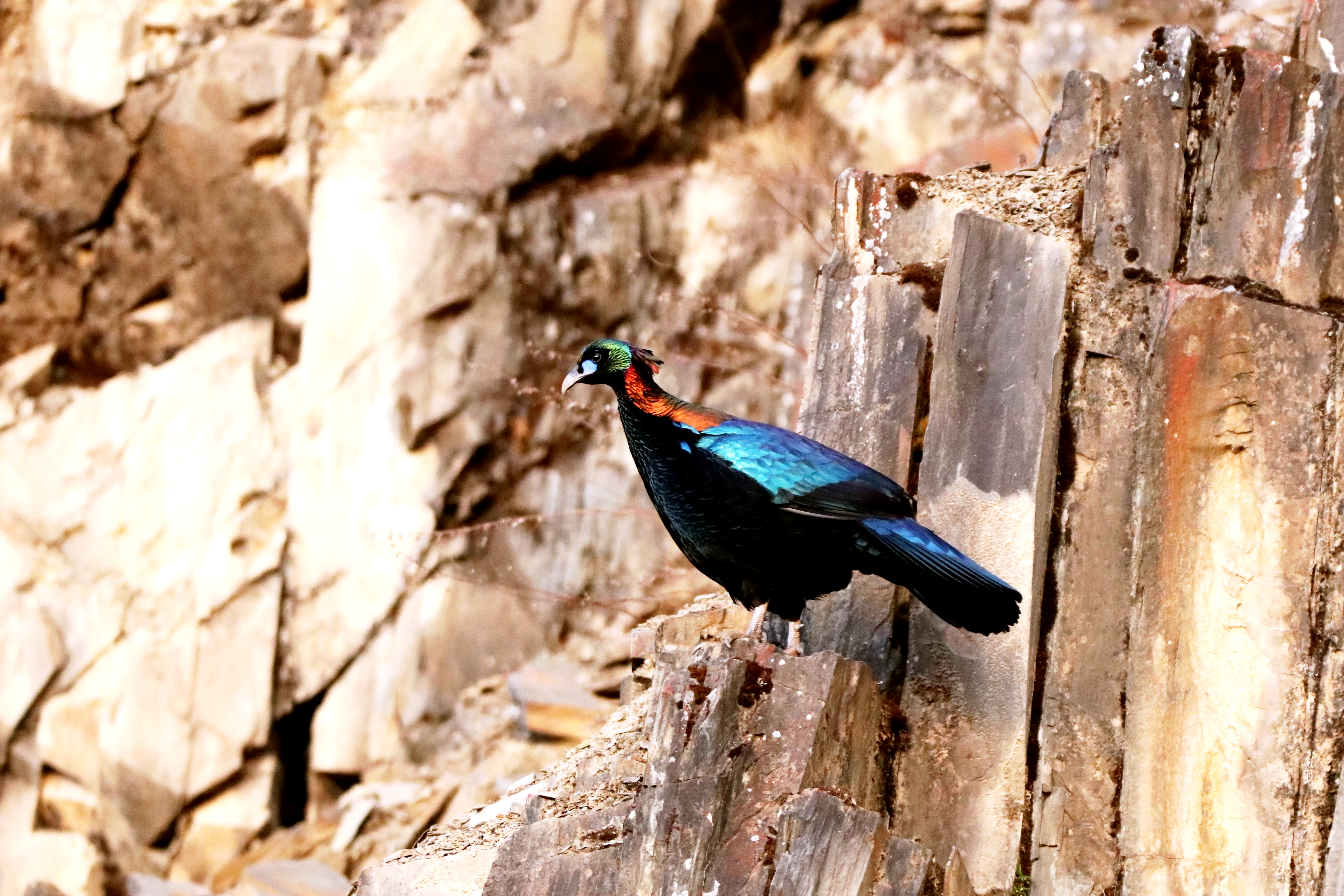
A male Chinese monal stands on a rock in Wolong National Nature Reserve in southwest China's Sichuan Province in early spring. /He Xiao'an
A male Chinese monal stands on a rock in Wolong National Nature Reserve in southwest China's Sichuan Province in early spring. /He Xiao'an
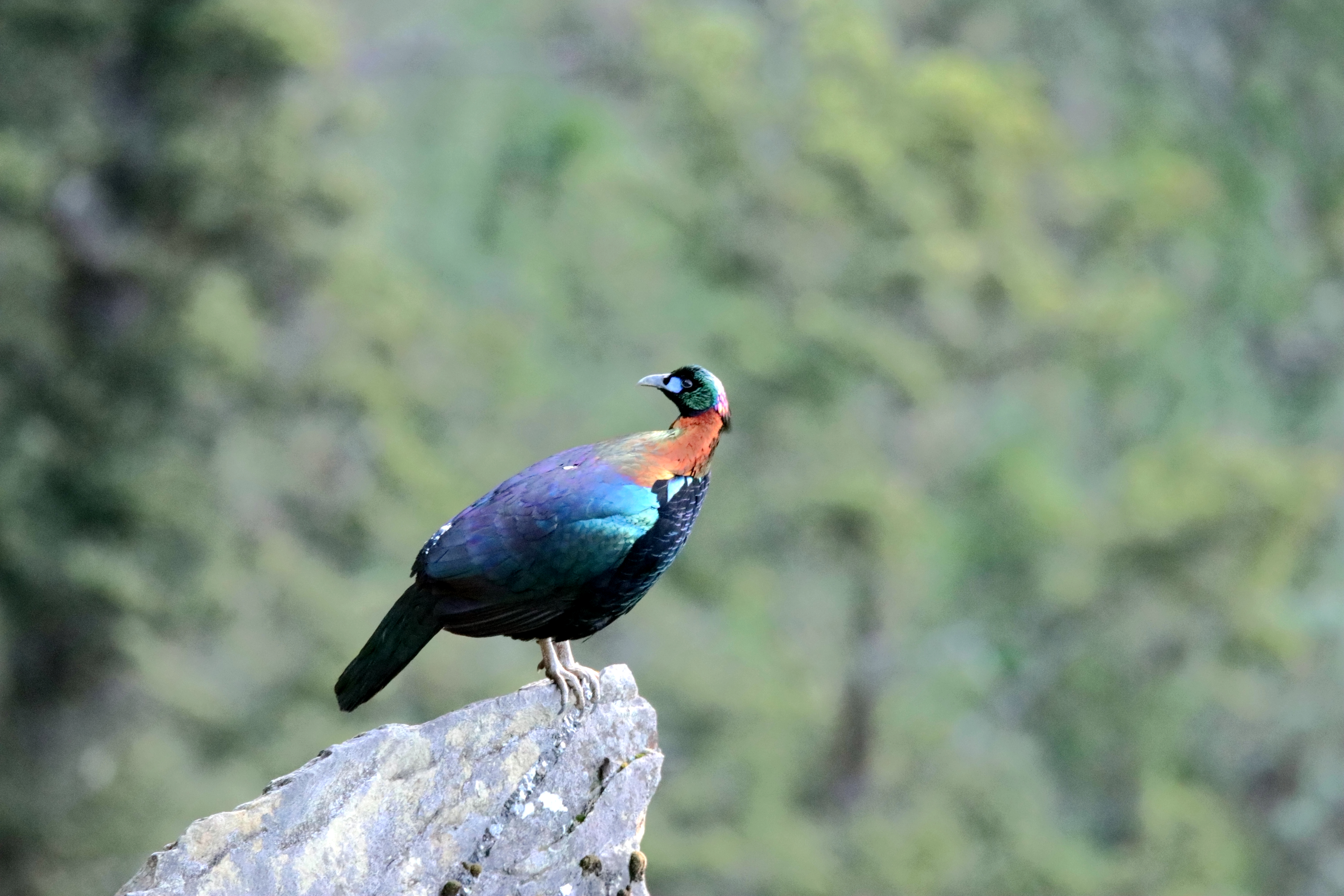
A male Chinese monal stands on a rock in Wolong National Nature Reserve in southwest China's Sichuan Province in early summer. /He Xiao'an
A male Chinese monal stands on a rock in Wolong National Nature Reserve in southwest China's Sichuan Province in early summer. /He Xiao'an
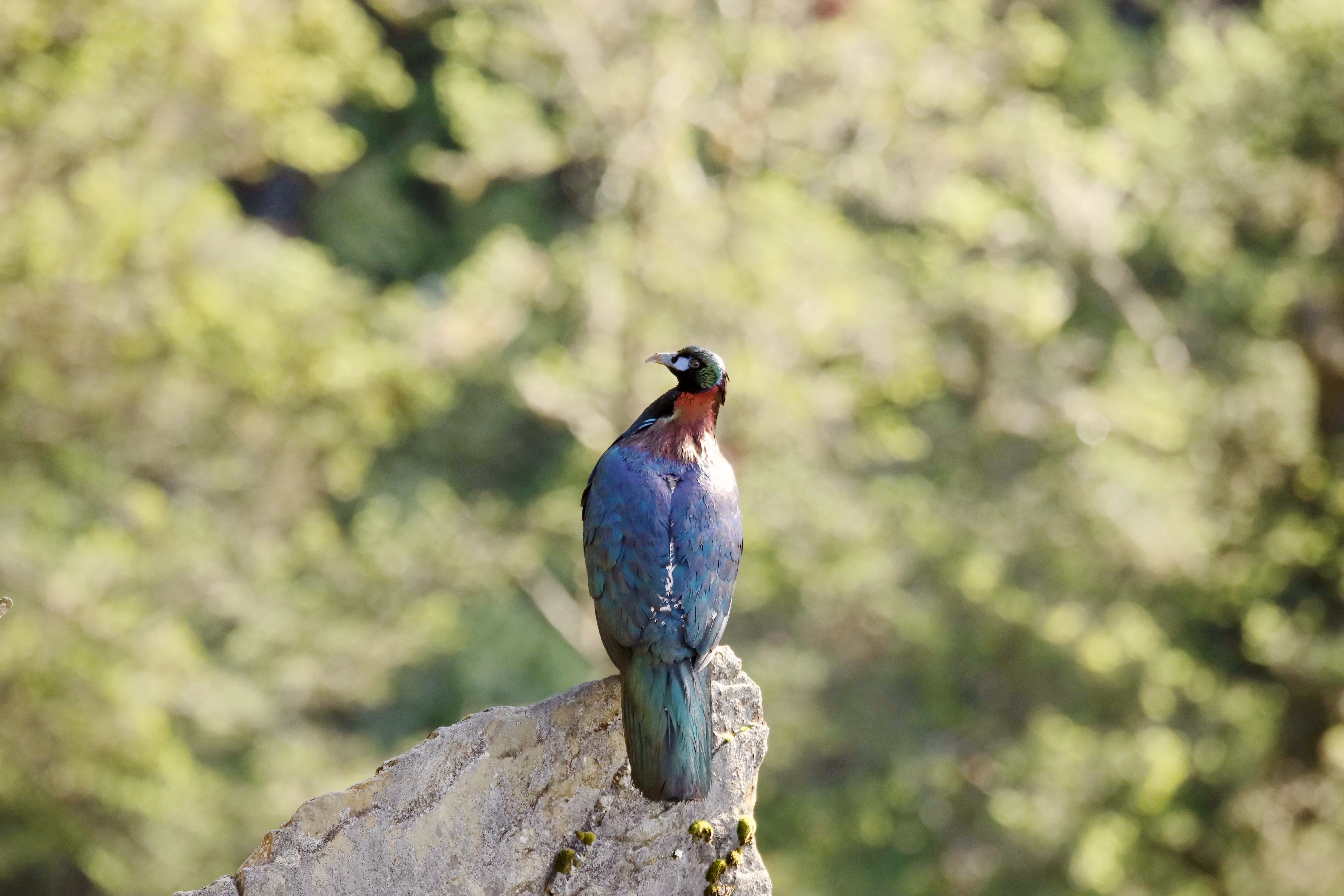
A male Chinese monal stands on a rock in Wolong National Nature Reserve in southwest China's Sichuan Province in early summer. /He Xiao'an
A male Chinese monal stands on a rock in Wolong National Nature Reserve in southwest China's Sichuan Province in early summer. /He Xiao'an
Chinese monals live all year around in forests and bushes at an altitude above 3,000 meters. They often forage at dawn and dusk. They make good use of misty fog and rainy weather to forage and migrate in long distances, which also allows them to hide from predators.

A female Chinese monal stands at a snowy hill slope in Wolong National Nature Reserve in southwest China's Sichuan Province in early spring. /He Xiao'an
A female Chinese monal stands at a snowy hill slope in Wolong National Nature Reserve in southwest China's Sichuan Province in early spring. /He Xiao'an
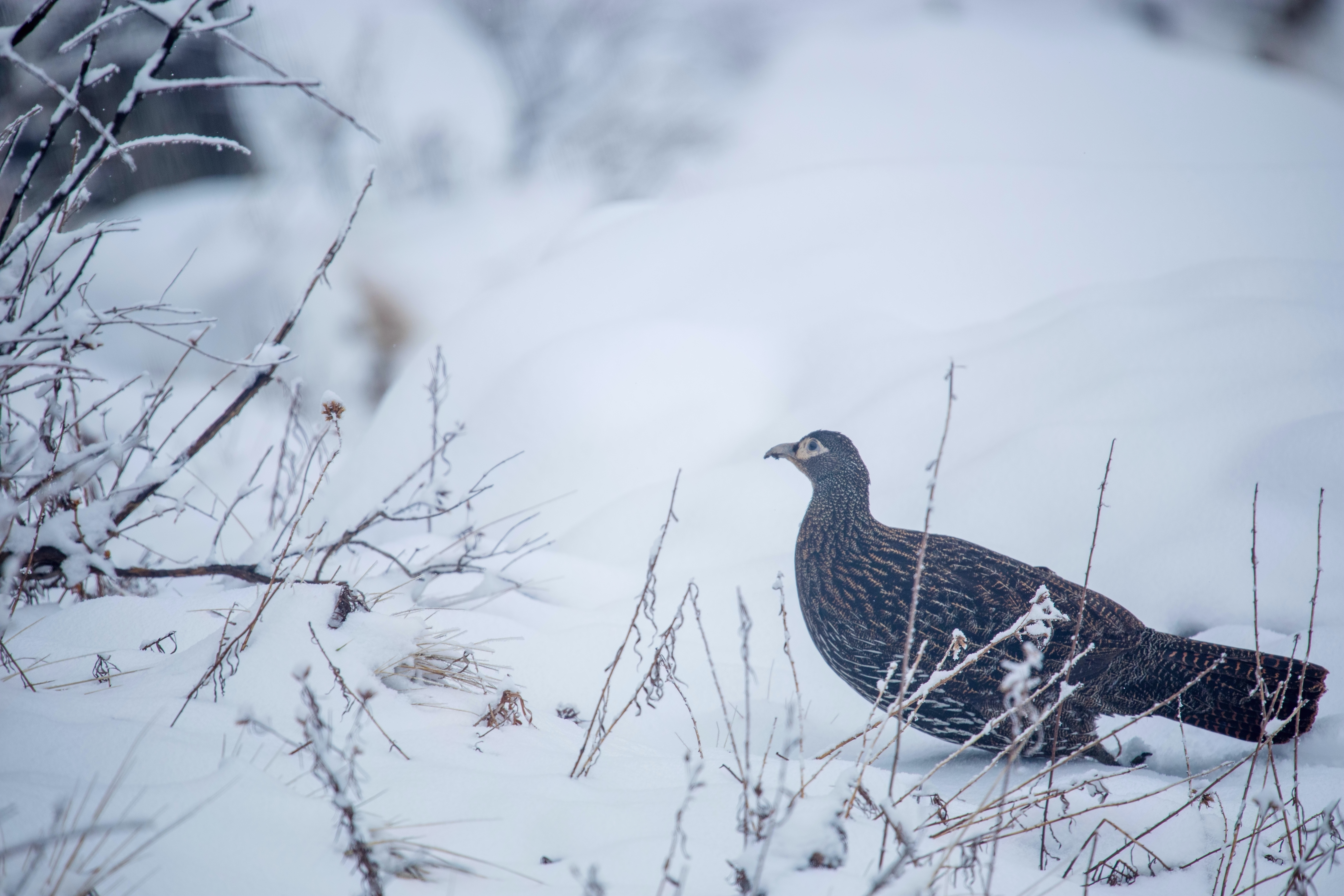
A female Chinese monal stands in snow in Wolong National Nature Reserve in southwest China's Sichuan Province in early spring. /He Xiao'an
A female Chinese monal stands in snow in Wolong National Nature Reserve in southwest China's Sichuan Province in early spring. /He Xiao'an
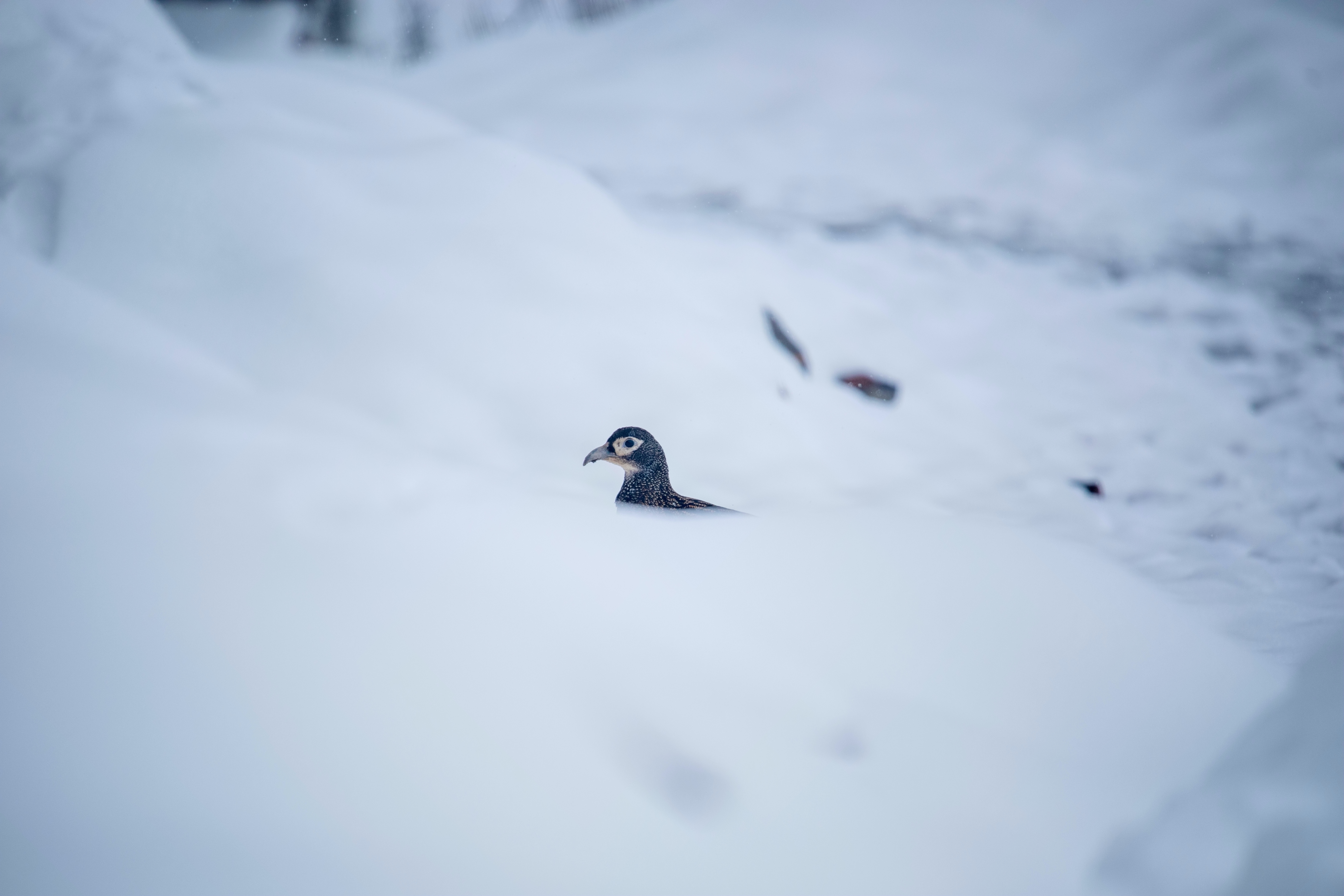
A female Chinese monal seen in snow in Wolong National Nature Reserve in southwest China's Sichuan Province in early spring. /He Xiao'an
A female Chinese monal seen in snow in Wolong National Nature Reserve in southwest China's Sichuan Province in early spring. /He Xiao'an
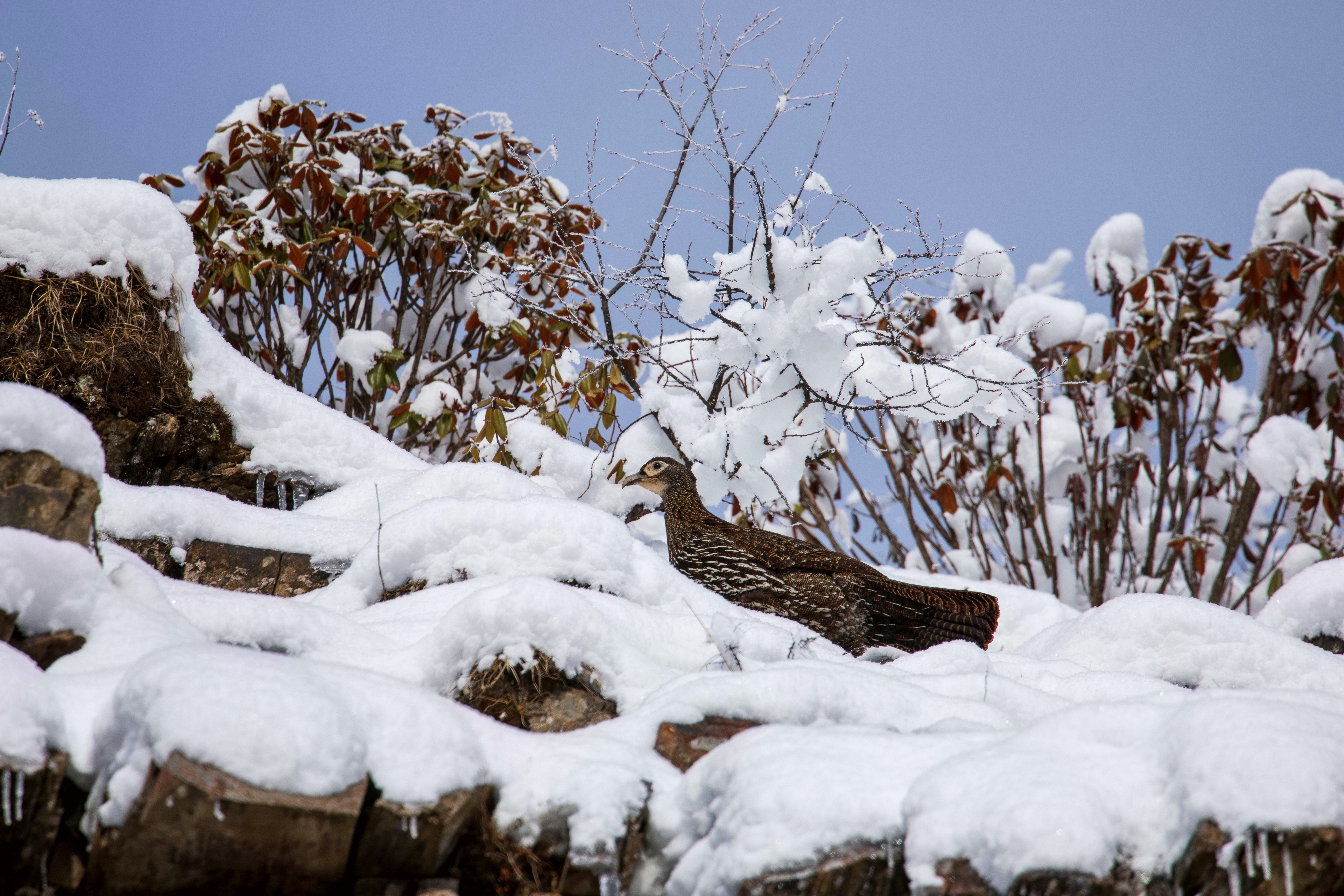
A female Chinese monal searches for food in snow in Wolong National Nature Reserve in southwest China's Sichuan Province in early spring. /He Xiao'an
A female Chinese monal searches for food in snow in Wolong National Nature Reserve in southwest China's Sichuan Province in early spring. /He Xiao'an
The local people in Wolong have many nicknames for the Chinese monal. Some call it "beimuji (贝母鸡)" because it likes to eat yellow Himalayan fritillary (川贝母). The others call it "yingji (鹰鸡)" as it can glide in the air like the eagle.
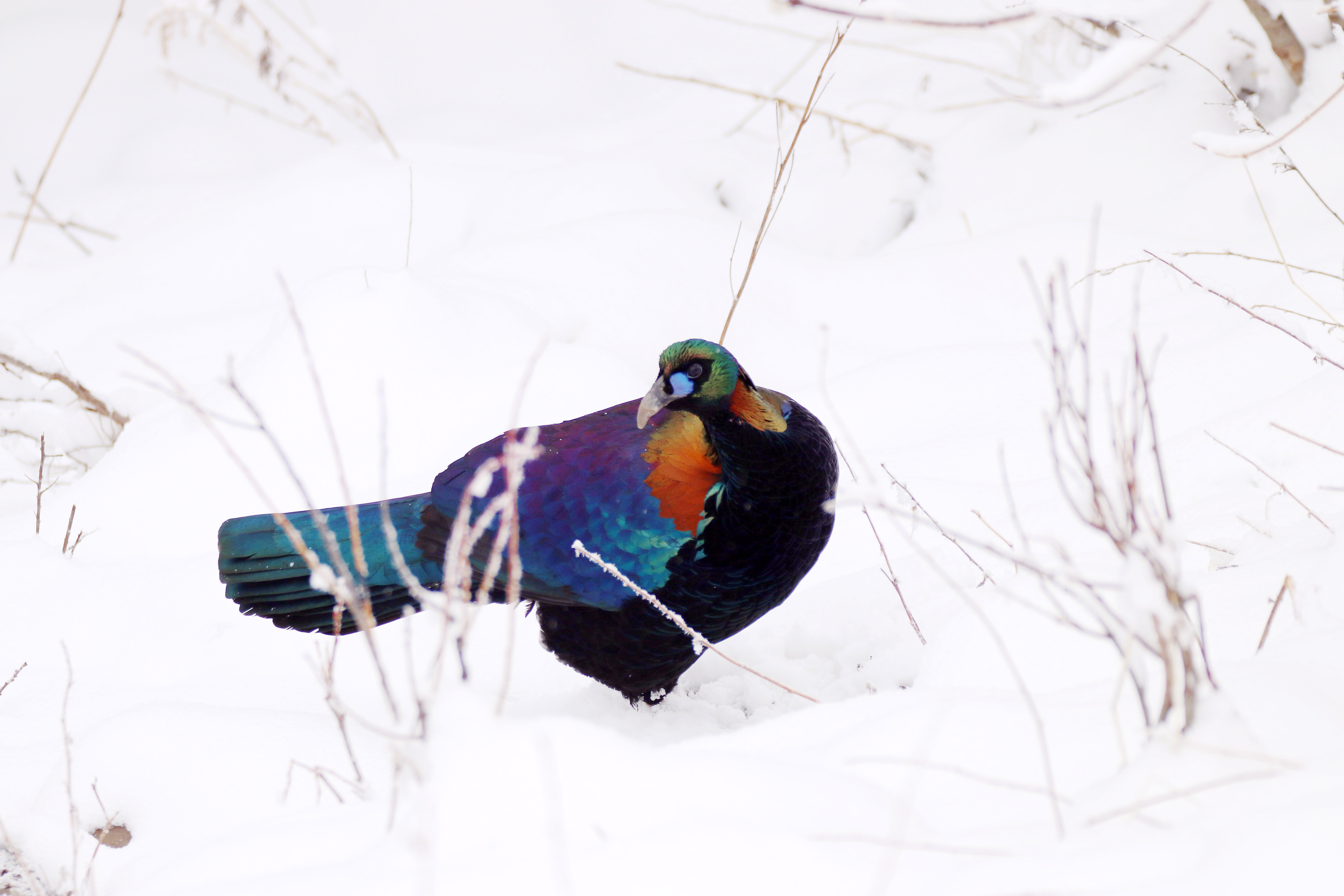
A male Chinese monal stands in snow in Wolong National Nature Reserve in southwest China's Sichuan Province in early spring. /He Xiao'an
A male Chinese monal stands in snow in Wolong National Nature Reserve in southwest China's Sichuan Province in early spring. /He Xiao'an
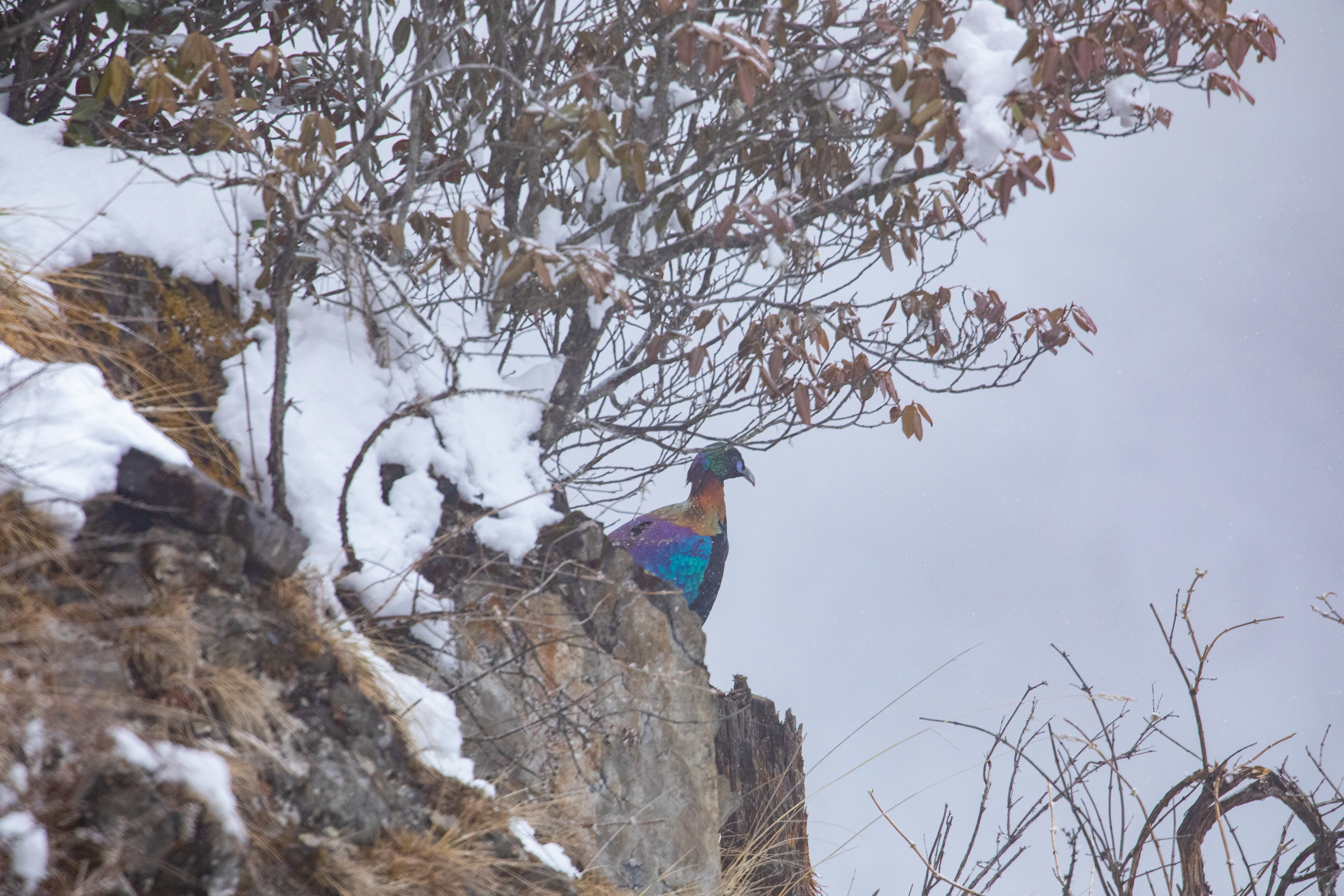
A male Chinese monal stands on a snowy cliff in Wolong National Nature Reserve in southwest China's Sichuan Province in early spring. /He Xiao'an
A male Chinese monal stands on a snowy cliff in Wolong National Nature Reserve in southwest China's Sichuan Province in early spring. /He Xiao'an

A male Chinese monal stands on a tree branch in Wolong National Nature Reserve in southwest China's Sichuan Province in early spring. /He Xiao'an
A male Chinese monal stands on a tree branch in Wolong National Nature Reserve in southwest China's Sichuan Province in early spring. /He Xiao'an
For more:
Wildlife of Wolong: The cute pika catcher
Wildlife of Wolong: The deer with 'vampire fangs'
(All photos taken by He Xiao'an, head of the Publicity Department of Wolong National Nature Reserve Administration in Sichuan Province.)
(If you want to contribute and have specific expertise, please contact us at nature@cgtn.com.)

